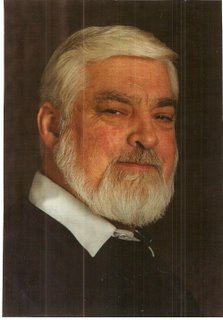By Ben Carson
At medical school, I decided to make neurosurgery my lifelong passion. I was impressed by the clinical presentations made by the neurosurgeons there, but the deciding factor was my own analysis of my god-given gifts: I had a tremendous amount of eye-hand coordination as well as an ability to think and visualize in three dimensions, a crucial skill. The brain does not contain many landmarks, and a neurosurgeon must be able to imagine readily where all the numerous nuclei, tracts and neurological pathways are situated.
After that first glimpse around the dissection table, the landscape of the brain continued to hold a fascination for me. Two years later, I saw it again in a living patient. Once again, I awaited the moment of revelation. This time, as the dura was folded back, the mysterious mass pulsated with life - and I had a sudden, startling insight: This conglomerate of billions of neurons and hundreds of billions of interconnections was the actual physical thing that gave each of us our distinct personality, the intellectual and emotional characteristics that made each person unique.
The organ systems of the brain is one of incredible complexity and power. It can process millions of pieces of information per second. It remembers everything a person has ever seen or heard. For example, by placing special electrodes into the parts of the brain that control memory, you can stimulate recall in an 85-year-old so specific that he could quote verbatim a newspaper article read a half-century earlier.
One characteristic of the brain in particular makes us essentially human and distinguishes our brains from those of animals: the presence of very large frontal lobes. They enable us to engage in rational thought-processing, to extract information from the past and the present, analyze it and use our conclusions to project a course of future action.
Animals are victims of circumstance. They can only react to their environment. But humans, thanks to our front lobes, can plan, strategize and exercise control over our environments..We don’t have to be victims who simply react.
I learned that truth about frontal lobes at age 10, when - not doing well in school and guided initially by my mother’s firm hand - I made a decision to change my life’s direction. Within a year and a half, by devouring book after book, I had migrated from the bottom of my fifth-grade class to the top of my seventh-grade class. This academic transformation was so dramatic that one might have suspected a brain transplant, if such a thing were possible. ‘The actual change occurred in my self-perception and my expectations. I had gone from victim to master planner.
By age 14, my mind was plotting my future. Reading biographies of successful people, I realized that I could change my circumstances of poverty by programming my brain with the kind of information that would guarantee academic success. That, I believed, would allow me to choose my own destiny.
I encountered negative people who tried to discourage me and put a lid on my dreams. I chose to regard them simply as environmental hazards to be carefully swept aside.
My strongest supporter and inspiration throughout this metamorphosis was my mother. She was one of 24 children, had only a third-grade education and was married by age 13. She steadfastly encouraged my brother and me to read, though she never learned herself.
Many times, as I progressed from medical student to professor of neurological surgery, I was struck by the anatomical beauty of the brain and the extraordinary things medicine could do to improve the quality of life. Yet, at the same time, I became increasingly fascinated with the unbounded intellectual potential contained within that 1400 -gram (3 pound) structure. The human brain, I came to realize, is simply a mechanical component of an entity of far greater beauty and power: the mind. I was awed by what an inspired and disciplined mind could accomplish.
Within every child’s brain is a mind teeming with ideas and dreams and abilities unrealized. The greatest thing we can do - as parents, teachers and friends - is to nourish that potential, both intellectual and humanitarian, so the each mind can fulfill its promise to the benefit of mankind.
Tuesday, June 19, 2007
Subscribe to:
Post Comments (Atom)

1 comment:
Batshit crazy!
Post a Comment